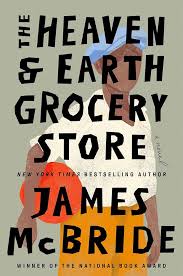Chapter 13: Cowboy
byChapter 13: Cowboy begins with Moshe leaning against the railing of the outdoor pavilion overlooking the Ringing Rocks skating rink, his mind lost in thought. Despite the laughter of teenage skaters and the soft snowfall around him, he feels distant and detached, clutching an unlit cigar. The cold bite of the winter air seems to match the bitterness in his heart, as he reflects on the series of events that have led him here. The natural beauty of the landscape, the sound of the rocks ringing when struck by a hammer, and the serenity he once felt have all been overshadowed by turmoil. His thoughts are disrupted by memories of his wife, Chona, who is now in a coma in a hospital, and the boy, their young charge, who is now in the care of the state. The weight of these burdens presses heavily on him as he watches the skaters below, reflecting on the past with a mix of anger and regret.
Moshe’s decision to visit Ringing Rocks was inspired by his old friend Malachi, whose letters filled with humor and optimism about life in Poland were a stark contrast to the grim reality Moshe faces now. Malachi had always been a source of comfort and encouragement, especially during times of hardship, urging Moshe to find moments of peace away from the chaos of his work. But now, as Moshe watches the skaters glide across the ice, he finds himself unable to write to Malachi with the same lighthearted spirit that once defined their correspondence. Instead, he pens a letter filled with sorrow and frustration, unable to mask the overwhelming difficulties he faces. He writes not just about his wife’s condition, but also about the changing landscape of the theater business, where Jewish audiences no longer appreciate the Yiddish theater and music that once brought joy to the community. Moshe feels the weight of these changes, the sense that everything he has worked for is slipping away, and he wonders whether it’s time to make a drastic change in his own life.
The events of the previous night at the theater had only added to his disillusionment. A booking fiasco involving Lionel Hampton’s band and the Afro-Cubans had left Moshe in a difficult position. As he recounts the argument backstage between Gladys Hampton and Mario Bauzá over who would be the headliner, Moshe realizes how much the business has changed. The audience no longer seems to appreciate the old jazz styles, and the conflict between the bands is just a symptom of the larger shift in the musical landscape. Moshe’s frustration grows as he tries to mediate between the two, but the situation only worsens, leading him to question his place in the industry. He begins to wonder if it’s time to let go of his old life and embrace something new, something that aligns with the changing times.
As Moshe continues to reflect on his past and present, he finds himself increasingly disconnected from the world he once knew. The theater, once a source of pride and joy, now feels like a reminder of what has been lost. He realizes that the community he once served no longer shares the same values and interests, and he is left grappling with the uncertainty of the future. The letter to Malachi, though written in a moment of despair, becomes a turning point for Moshe. It’s in this moment of reflection that he begins to consider a different path—one that might offer him a new sense of purpose and a way out of the turmoil that surrounds him. The thought of becoming a cowboy, a symbol of independence and adventure, offers him a glimmer of hope in an otherwise bleak time.
The package Moshe receives from Malachi, containing the tiny cowboy pants, brings a moment of lightness and humor amidst the heaviness of his life. The absurdity of the gift—a tiny pair of pants with a Star of David sewn onto them—makes Moshe laugh, and for a brief moment, he feels the weight of his troubles lift. The exchange with Malachi, though lighthearted, serves as a reminder of the connection they share and the importance of holding onto humor, even in the darkest of times. Moshe’s decision to send the pants back in a package that’s even harder to open, turning the joke into a kind of ritual, brings a sense of normalcy to his chaotic world. It’s a small gesture, but it’s enough to remind him of the value of friendship and the importance of holding onto the things that make life worth living.
As Moshe sits at the bench, his thoughts begin to clear. The absurdity of the situation with the cowboy pants, the challenges with the theater, and the difficulties with his wife all start to feel less overwhelming. The realization that he needs to make a change, to embrace a new way of living, begins to take root in his mind. The letter he writes to Malachi is not just an update on his life, but a declaration of his intention to move forward, to adapt to the changing world around him. For the first time in a long while, Moshe feels a sense of clarity and purpose, and the thought of becoming a cowboy no longer seems so far-fetched.


